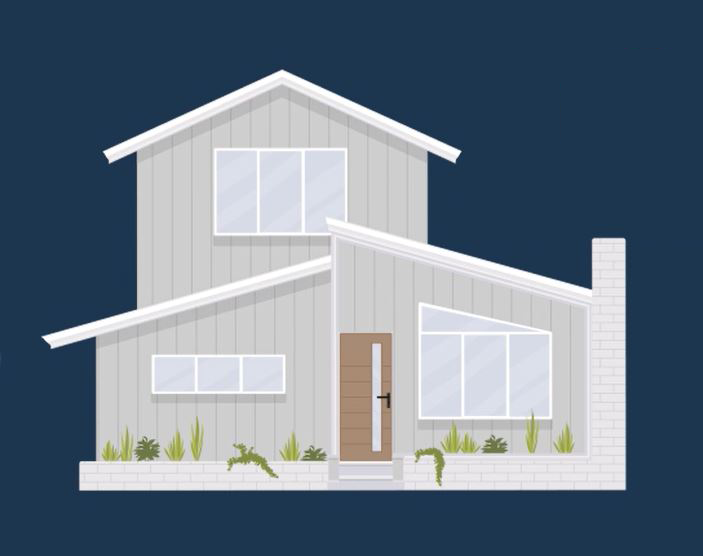When it comes to renting a property, tenants are often unsure of their rights and responsibilities. A common question is whether tenants are liable for accidental damage caused to the rental property. The answer is not straightforward, as it depends on different factors. It can include the type of damage, the terms of the lease agreement, and the applicable laws.
Under the law in New South Wales (NSW), Australia, tenants are responsible for maintaining the property in a reasonable state of cleanliness and repair. They are expected to take reasonable care of the property and avoid causing any damage.
If an accident happens both tenants and owners need to understand their responsibilities and how to manage repairs, especially for urgent repairs.
Contents
Are Tenants Liable for Accidental Damage?
Understanding Tenant Liability
Tenants are responsible for caring for the rental property. They must keep the property clean, and report any damage or repairs to the landlord. Tenants must not cause intentional or malicious damage. Sometimes tenants may accidentally damage the property. If this does happen tenants may be held liable. In NSW, laws state tenants are responsible for “damage to the property, either intentionally or through lack of care or attention.” This means if a tenant accidentally damages the property, they may be held liable for the cost of repairs. Tenants need to understand their liability. They must take precautions to prevent accidental damage. Examples of accidental damage are:- Accidentally spilling paint on the carpet
- Breaking windows while moving furniture
- Damaging walls while hanging pictures or shelves
- Scratching or denting floors
Accidental Damage: What Is It?
Accidental property damage often refers to any damage that occurs unintentionally or by mistake. In rental properties, accidental property damage can occur when a tenant causes damage to the property or its contents by accident or through negligence. Accidental damage can include:- Stained, ripped, or burned carpeting
- Tears in linoleum flooring
- Torn or missing curtains, blinds, or window coverings
- Broken windows
- Torn or missing window screens
- Large holes or dents in the walls
- Accidental fires
Tenant's Responsibility for Accidental Damage at Rental Property
Rental Agreement
When a tenant signs a rental agreement, they agree to certain terms and conditions of the tenancy agreement. This includes their responsibilities for any accidental damage to the rental property. These responsibilities are outlined in the agreement and may include provisions for paying for damages caused by the tenant or their guests.
Tenants should carefully review the agreement and understand their obligations. If a tenant causes damage to the rental property, they may be held liable for the cost of repairs or replacement.
Legal Obligations
Under NSW law, tenants have a legal obligation to take reasonable care of the rental property and keep it clean and tidy. This includes preventing accidental damage to the premises and property. Damage must be reported immediately to the landlord or property manager.
Tenants may be liable for the cost of repairs or replacement, if damage is accidental. If damage was caused by normal wear and tear or was not the fault of the tenant, tenants may not be held responsible.
Landlord's Role in Accidental Damage
Landlord Insurance Coverage
Landlords in NSW, are not required by law to have insurance coverage for accidental damage caused by tenants. It is recommended landlords have landlord insurance to protect their investment property from any accidental damage by tenants. Landlord insurance typically covers the cost of repairs or replacement of damaged property caused by tenants, including accidental damage.
Landlord insurance policies vary, and landlords should carefully review their insurance company’s policy to understand what is covered and what is not. Some landlord insurers’ policies may exclude certain types of accidental damage, such as damage caused by pets or intentional damage caused by the tenant. Landlords should also ensure their insurance policy covers loss of rent in case the property becomes uninhabitable due to accidental damage by tenants.
In an article entitled Insurers pursue renters for accidental property damage, Choice researchers report that some renters are being chased for accidental and unintentional damage costs after their landlords make insurance claims. It is worthwhile reading. This article stresses the need for renters to know their rights and responsibilities.
Property Maintenance
Landlords have a duty to maintain a rental property in a safe and habitable condition. This includes repairing any damage caused by the tenant, whether accidental or intentional. Landlords should conduct regular property inspections to identify any damage.
If a tenant causes accidental damage, they should be told if the repairs are required. They should be notified of a timeframe for action and completion date. If the tenant fails to make the necessary repairs, the landlord may need to take legal action to recover the costs of the repairs.
Landlords should also ensure that the rental property is in compliance with relevant building codes and safety regulations, including having smoke alarms installed and in working order. Electrical or gas appliances should be regularly serviced and maintained.
Determining Liability for Accidental Damage
Accidental damage can happen in any rental property. It’s important to determine who is liable for covering the cost of repairs.
Investigation Process
When accidental damage occurs, the first step is to investigate the cause and circumstances of the damage. This may involve speaking with the owner or tenant, witnesses, or reviewing security footage. The investigation should be thorough and impartial to ensure that the correct parties are held responsible for the damage.
Damage Assessment
Once liability has been established, the damage should be assessed. The cost of repairs should be determined. This may involve obtaining quotes from contractors or assessing the damage in-house. Accurate records of repair costs and invoices and receipts need to be kept.
Sometimes tenants can claim on their renters insurance for accidental damage. Renters insurance does not cover intentional damage or damage caused by illegal activities.
Preventing Accidental Damage
Tenants can be held liable for accidental damage. They need to take steps to prevent accidental damage happening. Here are some tips on how tenants can prevent accidental damage:
Use Furniture Pads
One common cause of accidental damage is furniture scratching or denting floors, or walls. Furniture pads can help stop accidental damage. These small pads are put on the bottom of furniture legs, preventing them from scratching or denting surfaces.
Hang Heavy Objects Correctly
Hanging heavy objects, such as mirrors or shelves, can cause damage to walls unless secured properly. By using special anchors designed for hanging heavy objects you ensure minimum damage to the surface behind the object.
Be Careful with Appliances
Another common cause of accidental damage is appliances. Tenants should be careful when using appliances, such as washing machines, dryers, and dishwashers. They should avoid overloading the machines, as this can cause them to break down. Tenants should take care when moving appliances, as they can easily scratch or dent walls or floors.
Keep the Property Clean
Keeping the rental property clean can help prevent accidental damage. Dirt and debris can scratch surfaces, and spills can cause stains. Clean up spills immediately, and avoid using harsh chemicals that can damage surfaces.
Report Any Problems Immediately to Your Property Manager
If tenants notice any issues such as faulty electrical wiring, leaks or broken appliances, they should report them immediately to their property manger. Your property manager can then facilitate the repairs/replacement and liaise with the owner and tradesmen, if required.
Key Takeaways
- Tenants in NSW are liable for accidental damage to rental properties, requiring care and prevention measures.
- Distinctions between accidental damage and normal wear and tear are crucial, with the former being tenant's responsibility.
- Tenants should promptly report accidental damage for repair and may use renters insurance for coverage.
- Landlords are advised to have insurance for accidental damage and maintain properties in habitable conditions.
- Legal and contractual obligations outline responsibilities for both parties, emphasizing the need for clear communication and documentation.
Need Guidance on Leasing? Contact Leah Jay Today
Whether you’re a landlord or a tenant understanding your roles and responsibilities in regards to the NSW tenancy laws is important.
Leah Jay is an expert team of property managers and would be happy to assist you by answering any of your queries – Contact Leah Jay today.




